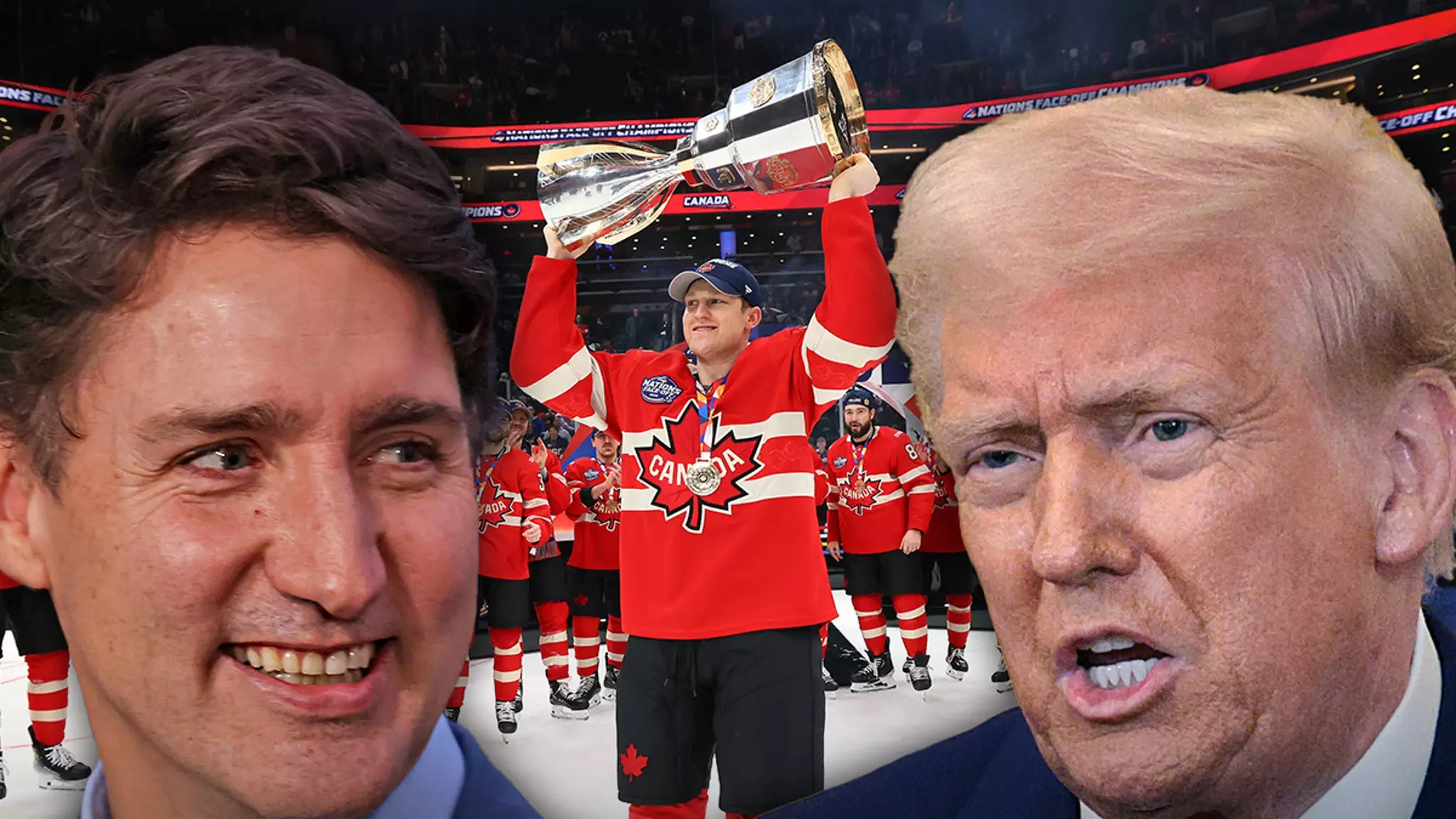In a highly charged atmosphere seldom seen outside the grand stages of the Olympics, Canada emerged triumphant over the United States in the closing match of the inaugural 4 Nations Face-Off tournament on Thursday night. The thrilling contest, which concluded in overtime with Connor McDavid clinching victory for the Canadian team, was shadowed by underlying tensions that have been brewing between the neighboring countries. As McDavid and his teammates celebrated their hard-fought victory, Canadian Prime Minister Justin Trudeau took to social media to taunt the U.S., referencing the political rhetoric surrounding Canadian sovereignty that has been echoing on the international stage.
A Game Enhanced by Political Climate
While the Face-Off tournament may have been a relatively inconsequential mid-season event in the larger context of hockey history, it took on monumental significance amid the current political climate and national pride. Over the course of the tournament, patriotic fervor fueled the competition, leading to heightened emotions on both sides. This was palpably illustrated during the pregame rituals, which saw fans on both sides express their dissatisfaction with the opposing national anthems. Such displays highlighted not only a sports rivalry but also an emotional confrontation tied to broader political narratives.
During the matches, tensions flared dangerously on the ice, with fights breaking out almost immediately. This unscripted chaos mirrored the political discourse between the two nations, indicative of a rivalry fueled not only by sportsmanship but also by underlying grievances. As the players took to the ice, one couldn’t shake off the feeling that they were not just representing their teams but also their countries, making stakes far higher than the championship trophy itself.
Post-game, both sides acknowledged the unique significance of this event. Canadian star Nathan MacKinnon expressed that the moments shared on the ice felt especially poignant given the larger context of U.S.-Canada relations. His assertions highlighted how significant rivalries can transcend the sport and invigorate national sentiment, effectively turning a simple hockey tournament into a battleground of national pride.
McDavid’s assertion that the win “means the world to our group” resonates deeply when considering how sports can serve as a catalyst for emotional stakes that reflect broader societal sentiments. Their victory comes nestled within a backdrop of regional conversations, including discussions around sovereignty, identity, and nationalism, making this win more than just about hockey.
As fans gear up for future matchups, the excitement surrounding international events like the Winter Olympics looms on the horizon. Yet for the United States, the sting of this recent defeat coupled with the fire of rivalry adds another layer of anticipation for the next international showcase against Canada. As both nations digest the implications of this electrifying tournament, one thing remains certain: the competitive spirit and camaraderie found in sports continue to illuminate, and sometimes exacerbate, the bonds and tensions defining the intricate U.S.-Canada relationship.

